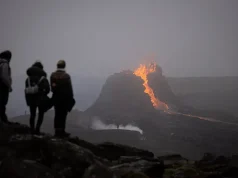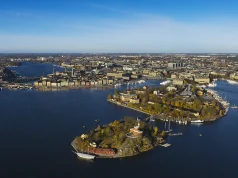Sea cows, otherwise known as manatees, are a staple of Florida’s waters. They explore the serene blue waters of the state for much of the year and, when the weather gets a bit chillier, they settle in the state’s freshwater springs. Throughout Florida, visitors can get a chance to see these beautiful aquatic creatures in their natural habitats. Visitors can get up close and personal with manatees and understand why Florida is working hard to preserve this threatened species and restore their habitats.
Three Sisters Springs in Crystal River is a vital winter habitat for manatees. Visitors can enjoy watching these gentle creatures along the area’s boardwalk and hop on a clear kayak to see them navigate through clear waters. For a closer look, embark on a guided sightseeing tour below the surface and snorkel beside manatees. Only available in Crystal River, these tours educate visitors on how to passively observe manatees to ensure the utmost safety of the area’s sea cows.
At Homosassa Springs, manatees are just one of the countless creatures that call this wildlife state park their home. Check out the natural spring bowl and see if you can spot the manatees in their natural habitat. Stand up and paddle along the surface with River Adventure Tours for a new way to sightsee.
In the cooler months, head north of Crystal River to Manatee Springs State Park, where the landscape’s namesake can be seen while visitors walk along the sprawling 800-foot boardwalk. This first-magnitude spring is a sight to behold all its own, and the manatees that populate its waters are just the cherry on top.
Looking to not only see manatees but learn more about them? Then Manatee Lagoon in West Palm Beach should be your next stop, an eco-discovery centre dedicated toward educating the community as well as inspiring others to help preserve and protect these fascinating creatures. There are a range of exhibits fit for guests of all ages and gorgeous waterfront views, amounting to the perfect destination to bring the family.
Florida has always strived to protect its natural surroundings and preserve the species that inhabit them. Earlier this month, the latest effort to help sea cows was announced. The Florida House of Representatives proposed US$8 million of general revenue, through its supplemental funding list, to the Florida Fish and Wildlife Conservation Commission to help the state’s beloved threatened manatee population. The funding is more than double the usual manatee recovery subsidy and marks Florida’s latest effort to protect sea cows.
Locally, Crystal River’s highly successful multi-year Kings Bay Restoration Project is expanding this summer and may soon become the standard for restoring troubled coastal waters that manatees rely on elsewhere in Florida. After the pilot project’s success, the Florida Legislature continued funding follow-up phases and currently a total of 92 acres of the 600-acre Kings Bay are under restoration as part of a US$40 million, seven-year project, and already over halfway complete.
Dedicated to replanting native eel grass, the project continues to remove toxic algae in the region that reduced oxygen levels and killed off food sources for numerous creatures, the manatee among them. “There’s more food for the manatees,” said in-water ecotour guide John Spann of the Plantation Adventure Center, “and more are staying in Kings Bay year-round instead of leaving at the end of winter.” “I wasn’t sure it was going to work when they started,” said Spann, “but it’s a day-and-night difference.”
Another local advocacy group – The Homosassa River Restoration Project – has also secured State funding to begin similar work on the nearby Homosassa River.
As a threatened species, sea cows face an uncertain future, but through funding and initiatives, the state of Florida can continue to work hard to ensure that visitors will continue to see these magnificent beasts and swim beside them for years to come.
Click here for more information about manatees in Florida.





